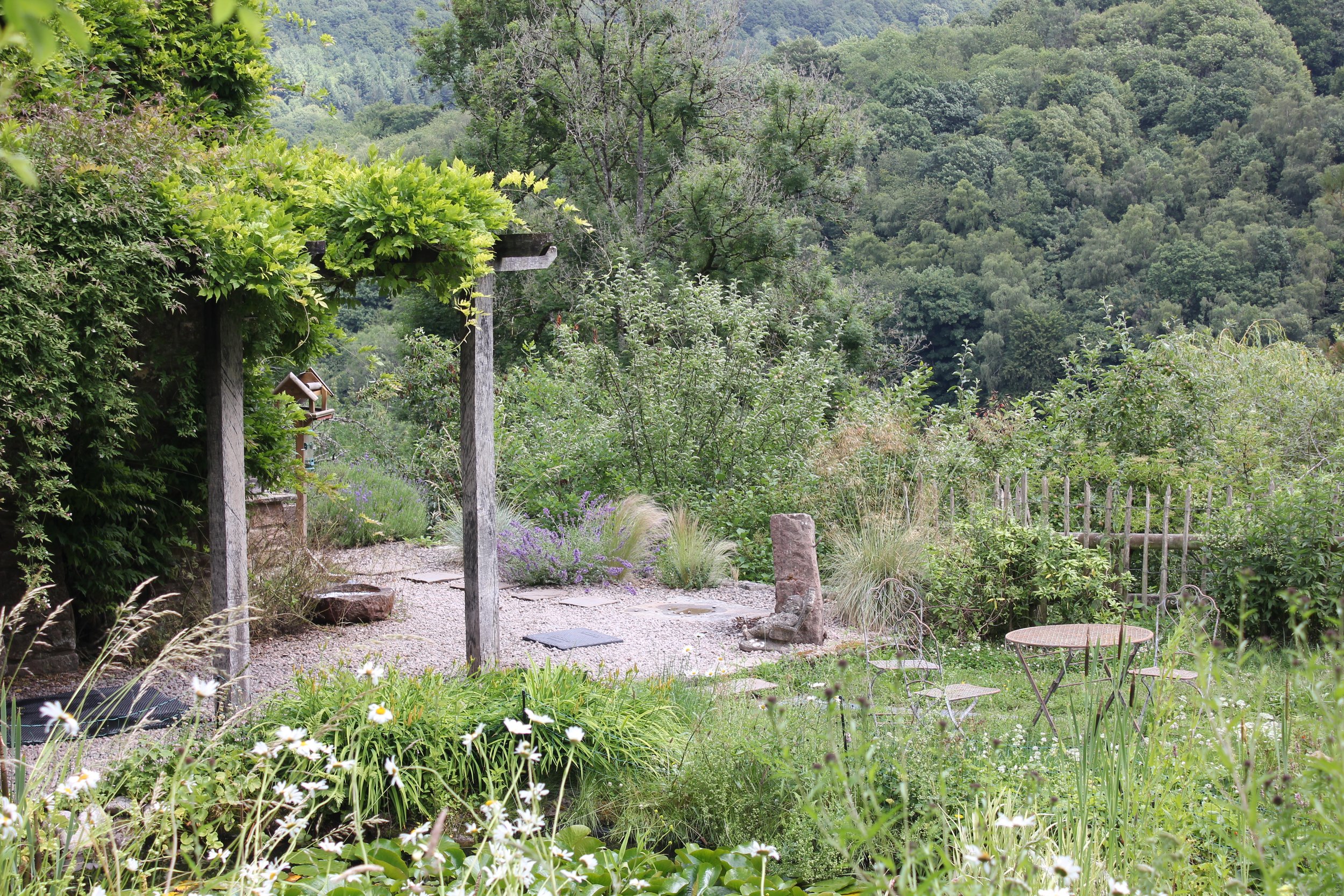Disturbance, dispersal and diversity.
The three Ds are sometimes used to describe some of the processes of rewilding, but our gardens individually lack the space for herds of herbivores to trample and graze, wild pigs to rootle around or beavers to reorganise our drainage systems.
We are the keystone species in our gardens, our mower or scythe cuts the grass, our spade, fork or trowel turns over the soil and our choices of hard landscaping, planting and water features dictate how the water we receive as rain passes over, or soaks through our land. If we ever need convincing of this, just watch a robin as he follows us around the garden. Old habits die hard, his ancestors would have benefitted from wild boar as they dug up the forest floor in search of food and unearthed insects and worms.
Every time we ‘garden’ we disturb our gardens’ ecosystems so it’s vital that we do so with care and thought for the consequences. When we cut the grass we open up the sward to light allowing lower plants to grow up, but take away the heads of plants perhaps ready to flower or seed. When we dig we allow seeds within the soil to reach the light but open up the soil organisms to predation or drying out and leave the soil surface open to erosion by wind and rain. When we add drainage to our gardens the plants which would have been happy in the damp might suffer but those which prefer drier conditions may thrive. When we add paving we take away a habitat entirely, but small pockets of planting included can benefit from the heat absorbed by the stone.
We think of dispersal as it relates to plants, as seeds blow away in the wind or are eaten by animals, pass through their digestive system and land in new soil. But our actions disperse animals too, insects will come to forage from a new nectar and pollen source, but if one is taken out, they will go elsewhere. Insect eating birds will follow them and seed eating ones drop by on migration to feast on ripe berries. If we provide a pond, as if by magic, amphibians, dragon flies and damsel flies will arrive to hunt for food and breed, but if we take away water, those species dependant on it will disperse elsewhere or if not able to, they will die.
Diversity in our gardens’ habitats and plant types relates directly to its biodiversity, the greater the variety of places and plants we have for wildlife to find a place to live, to bring up the next generation and feed themselves and their offspring, the greater the number of species which will choose to live in our gardens.
For more about where to begin please visit Where to begin
For more about how our gardens relate to their landscape please visit Our gardens in context
For more about regenerating, reconnecting and restoring nature please visit Regenerate, reconnect, restore
For more on embracing the changes we need to make please visit Embracing change
For more on Wildlife please visit Wildlife
For the latest Blog please visit my Blog








